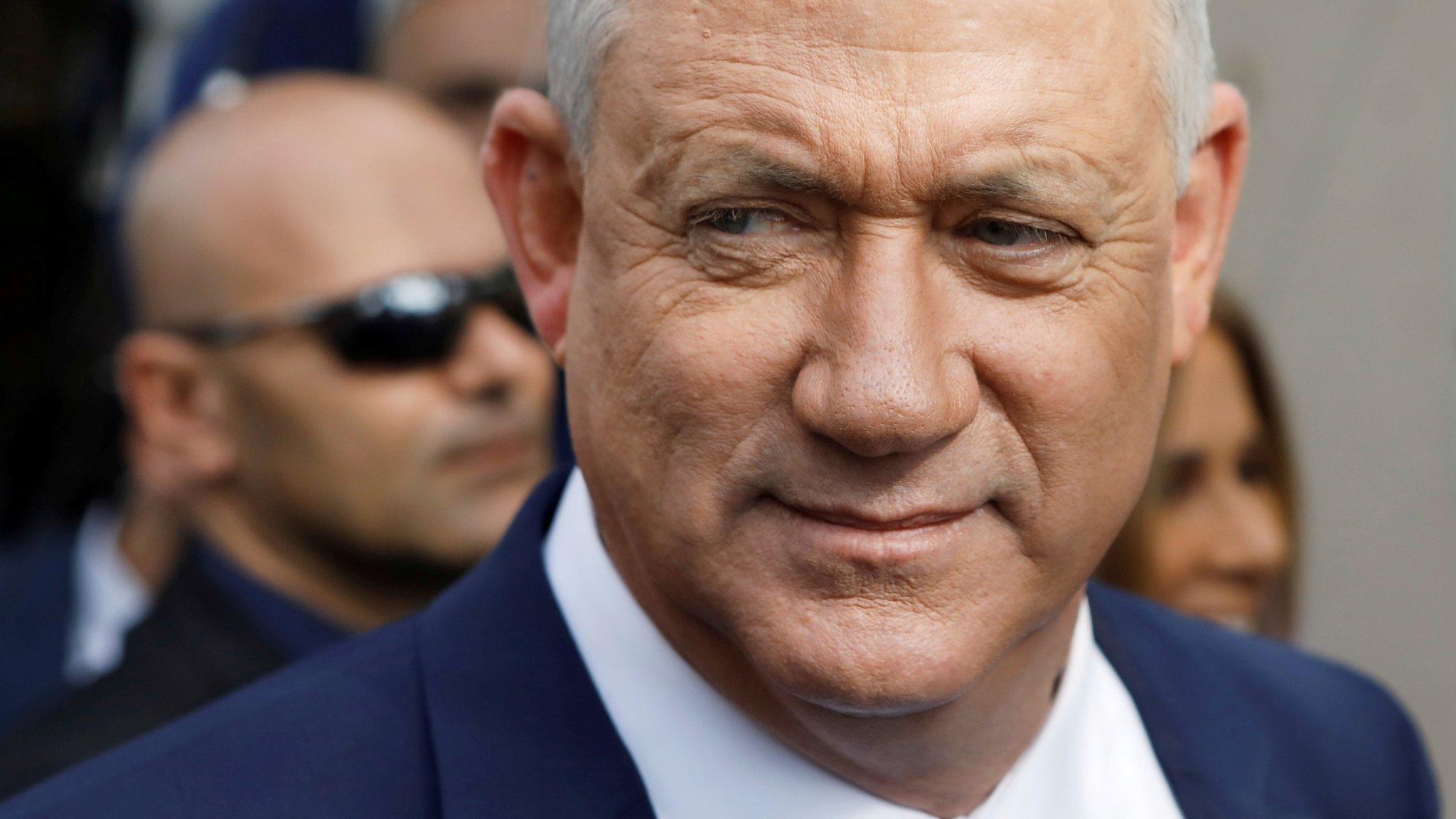Israel election: Netanyahu claims 'biggest win' amid vote count
- Published
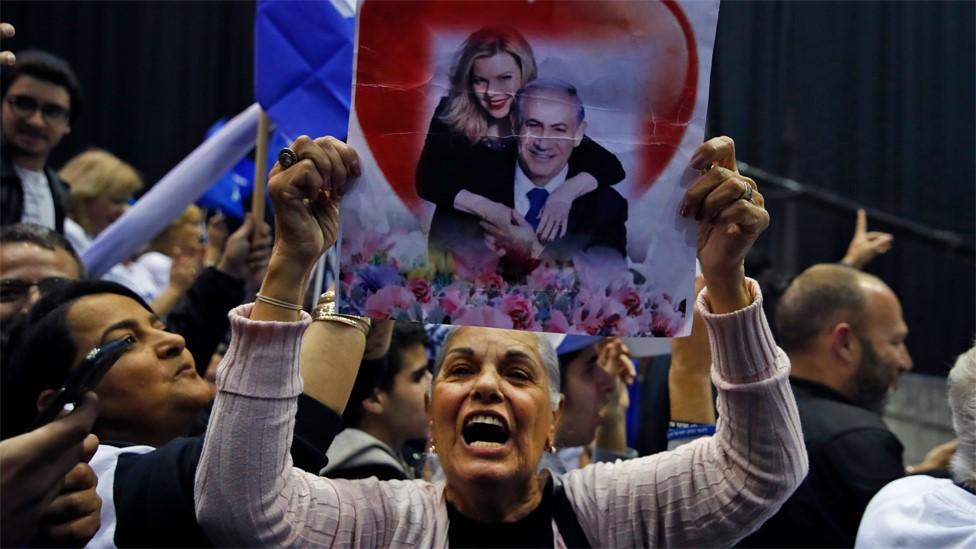
Likud supporters in Tel Aviv celebrated after the exit polls were published
Prime Minister Benjamin Netanyahu has claimed victory in Israel's general election, with partial results putting him ahead of main rival Benny Gantz.
With 90% of votes counted, his Likud party and its right-wing allies were on course to win 59 seats, Israeli media reported. However, that would leave them two short of a majority.
Mr Netanyahu nevertheless declared the outcome "the biggest win of my life".
Monday's election was Israel's third in less than a year.
Neither of the two main party leaders was able to command a majority in the 120-seat parliament following the last two rounds.
Mr Netanyahu, 70, is Israel's longest-serving prime minister. He is seeking a record fifth term, having been in office from 1996 to 1999 and again from 2009.
The election took place two weeks before Mr Netanyahu is due in court to face corruption charges, which he denies.
How close is the race?
With about 90% of votes counted, Likud had 29.35%, compared to 26.34% for Mr Gantz's centrist Blue and White alliance, the Central Elections Committee said.
Israeli media reported that the tallies would result in Likud winning 36 seats and Blue and White 32.

The Joint List alliance representing Israel's Arab minority was on track to get 15 seats; the ultra-Orthodox parties Shas and United Torah Judaism 10 and seven respectively; the centre-left Labour-Gesher-Meretz list seven; the nationalist Yisrael Beitenu party seven; and the right-wing Yamina alliance six.
The breakdown would leave Mr Netanyahu's right-wing bloc with 59 seats and the centre-left bloc 54. Yisrael Beitenu, whose leader Avigdor Lieberman was in the position of kingmaker after the last two elections, could tip the balance.
Despite the projected shortfall, Mr Netanyahu told a joyful crowd of his supporters in Tel Aviv early on Tuesday that he had won "a victory against all odds".
"Our rivals said: the Netanyahu era is over. But with joined forces, we turned the situation around. We turned lemons into lemonade!"
He promised to build "a strong and stable government" as soon as possible.
"We must avoid any more elections. It's time to heal the rifts," he said.


Final results are not due out until Tuesday afternoon at the earliest. But with most of the votes counted Benjamin Netanyahu's Likud is the largest party.
The opposition Blue and White alliance failed to weaponise his upcoming trial on corruption charges.
Likud and its right-wing allies need to muster 61 parliamentary seats for Mr Netanyahu to form a majority government.
Projections suggest his right-wing bloc will need defections from other parties - quite possible in Israel's fluid party system - to pass the all-important threshold.
But Mr Netanyahu will take a majority of one as a mandate for his agenda.
That includes the annexation of parts of the occupied West Bank that Palestinians want for a future state, as laid out in Donald Trump's so-called "deal of the century".
Mr Netanyahu hailed a "huge victory". But the results show that Israel remains deeply divided about the future and his controversial, populist leadership.

How have opponents reacted?
Mr Gantz, who is a former chief of staff of the Israel Defense Forces (IDF), did not immediately admit defeat and urged Israelis to wait for the final results.
"It appears that Netanyahu does not have 61 [seats] to form a government," he told reporters outside his home in the town of Rosh Haayin on Tuesday.
"We are committed to the State of Israel and the society in Israel, and we certainly respect the voters' decision. We will follow the developments regarding the actual results, and will see where we take it from there."
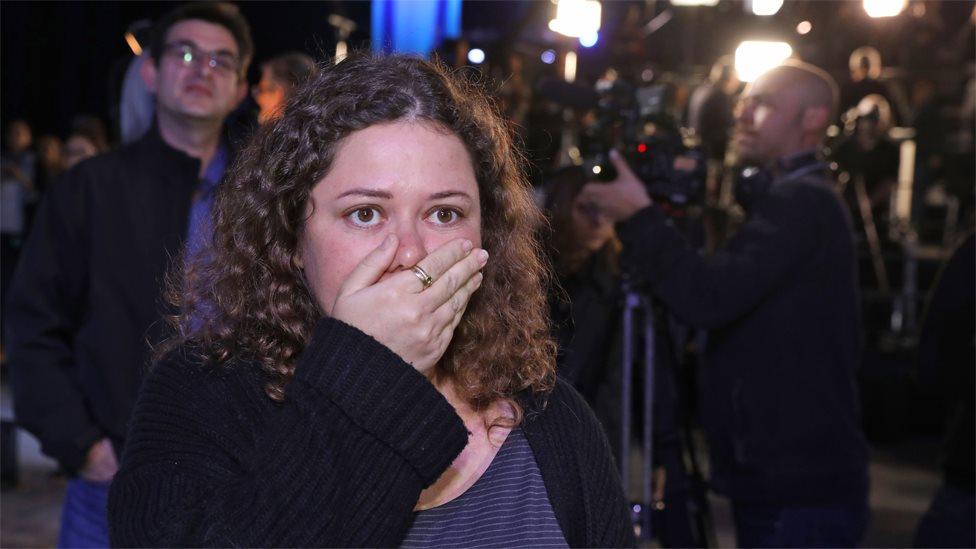
At Blue and White's election HQ, the exit polls left supporters shocked
Mr Lieberman said he would consult his party on Thursday about whom to back.
"As we promised voters, we will do everything to prevent a fourth election," he told reporters in the Jewish settlement of Nokdim, in the occupied West Bank. "We intend to make a decision, one way or another."
But he also insisted that Yisrael Beitenu would keep its campaign promise not to join a Likud-led government that includes religious parties.
What could this mean for Palestinians?
The secretary general of the Palestine Liberation Organisation (PLO), Saeb Erekat, tweeted after the exit polls were published that it was "obvious that settlement, occupation and apartheid have won the Israeli elections".

Mr Netanyahu has promised to annex Jewish settlements in the occupied West Bank
During the campaign, Mr Netanyahu vowed to swiftly annex Jewish settlements and the Jordan Valley in the occupied West Bank if he won a fifth term.
Such a move was made more possible after US President Donald Trump released his Middle East peace plan in January. Mr Trump said the US would "recognise Israeli sovereignty over the territory that my vision provides to be part of the State of Israel", including parts of the West Bank - a departure from past US positions.
The Palestinians, who have rejected Mr Trump's plan as one-sided, insist that all the settlements must be removed if there is to be final peace deal.
More than 600,000 Jews live in about 140 settlements built since Israel's 1967 occupation of the West Bank and East Jerusalem. The settlements are considered illegal under international law, though Israel disputes this. The US has also declared it no longer sees the settlements as illegal.
What about Mr Netanyahu's trial?
A wily political operator, Mr Netanyahu is known to his supporters as "the magician" for his ability to defy sceptics.
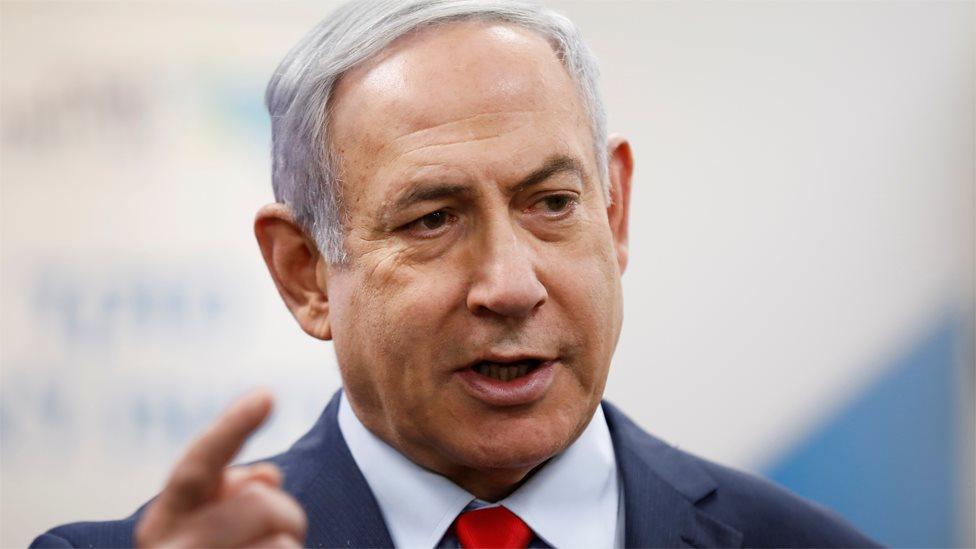
Mr Netanyahu has said he is the victim of a politically motivated "witch hunt"
He fought this election under the cloud of criminal proceedings, as he is due in court on 17 March to face charges of bribery, fraud and breach of trust in connection with three separate cases.
He is alleged to have accepted gifts from wealthy businessmen and dispensed favours to try to get more positive press coverage.
Mr Netanyahu has strongly denied any wrongdoing, saying he is the victim of a politically motivated "witch hunt".
Even if convicted, Mr Netanyahu would not be required to step down as prime minister until the appeals process was exhausted.
- Published1 March 2020

- Published28 January 2020
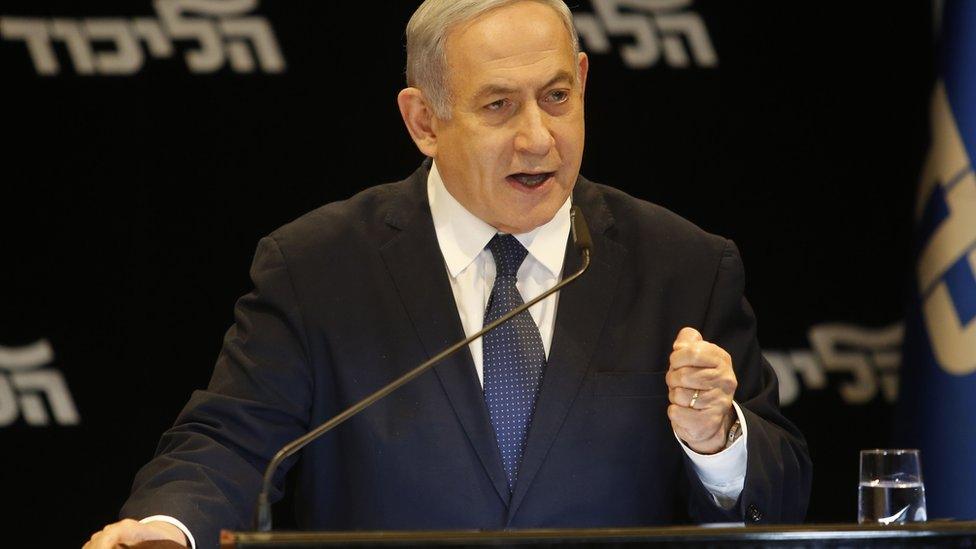
- Published21 November 2019
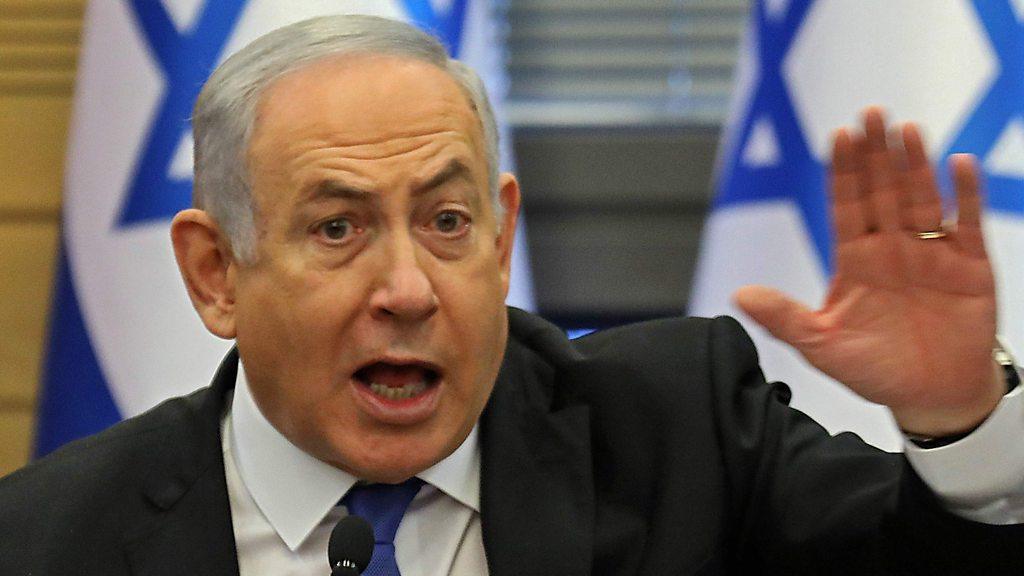
- Published21 November 2024

- Published14 May 2020
